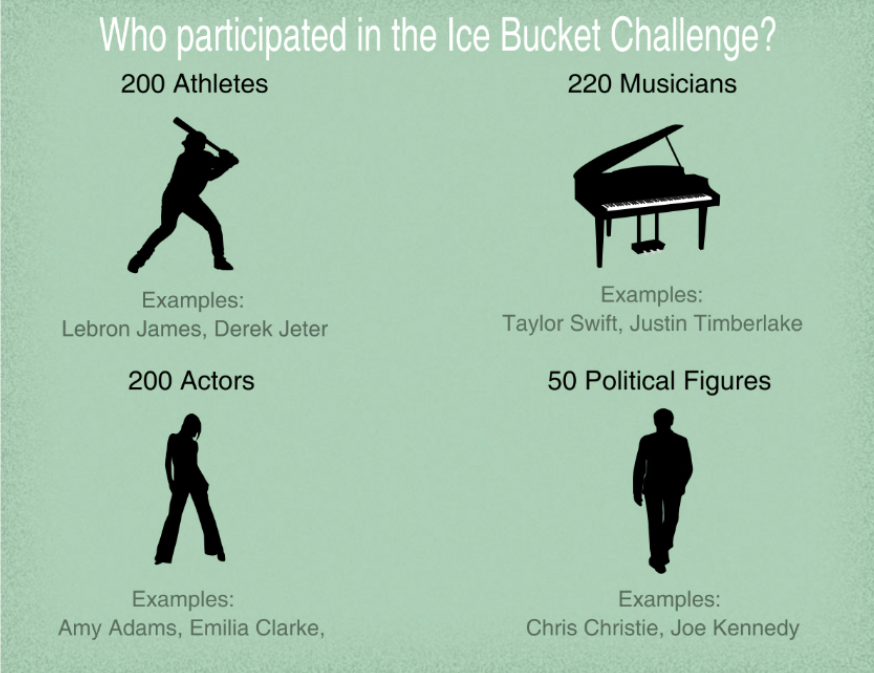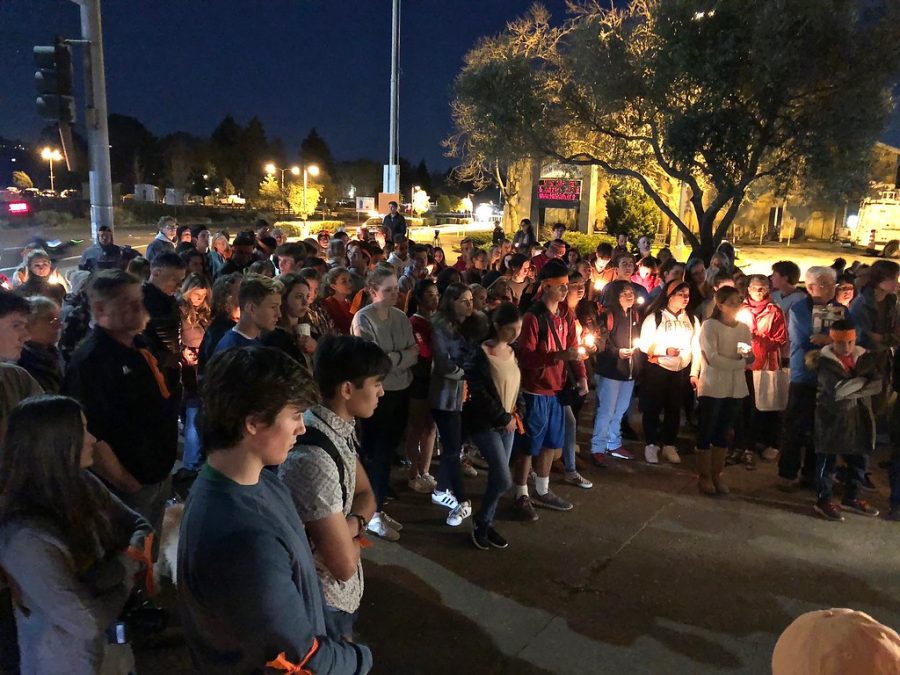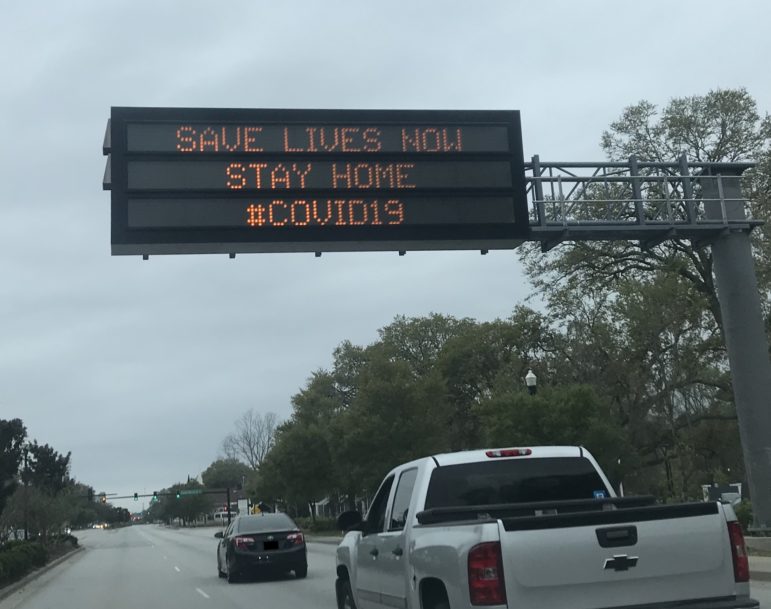By McKella Sylveser
With #IceBucketChallenge trending on Twitter and over one million videos posted on Facebook, the ALS Association’s fundraiser lost its purpose as it turned into a social trend.
A few months ago, a scroll through Facebook would reveal countless videos of people pouring buckets of ice water on themselves. They were all participating in the “Ice Bucket Challenge,” a movement to help raise awareness about and money for ALS, or amyotrophic lateral sclerosis. To complete the challenge, participants recorded videos of themselves stating their names, explaining that they were taking the “ALS Ice Bucket Challenge,” dumping cold water over their heads and nominating three other people to take the challenge. Nominees who did not complete the challenge were supposed to donate $100 toward ALS research.
Thousands of people across the nation participated in the “Ice Bucket Challenge” and many donated money. Numerous professional athletes and celebrities posted videos of themselves participating in the challenge. Actor Charlie Sheen poured over his head $10,000 in cash that he would donate to the ALS Association.
The “Ice Bucket Challenge” initially maintained the focus of raising awareness and money. However, this focus soon shifted to the act of participating in the challenge rather than the meaning behind the challenge. It seems that people became more interested in the fun of pouring water on themselves than understanding its purpose. In many videos, participants only stated their names and the names of those they nominated before dousing themselves, not even mentioning ALS. Even the media’s coverage of the challenge was more aimed on the challenge itself instead of the disease with which it was associated.
Additionally, the “Ice Bucket Challenge” resulted in moral licensing, which is when people become more likely to make immoral decisions after doing something good. This happens because they become blinded to consequences of immoral behavior when confidence in their self-image is boosted after performing the good deed.
Moral licensing coincides with the desire to partake in social trends, a key component of the Ice Bucket Challenge’s popularity. People knew that taking the “Ice Bucket Challenge” would be deemed a good deed, but did not realize that posting their videos on social media without emphasizing the important connection to ALS turned it into more of a fad than an awareness campaign.
Although participants did not mean any harm by taking the challenge, their intentions seemed to be more focused on posting videos on social media than informing the public. The “Ice Bucket Challenge” ultimately became a form of entertainment and lost its original purpose of helping ALS victims. The tragic neurodegenerative disease needs and deserves awareness and support, with an attention not divided between a serious cause and “likes” on Facebook.
Social media diverts the Ice Bucket Challenge’s original purpose
October 29, 2014
0
More to Discover








